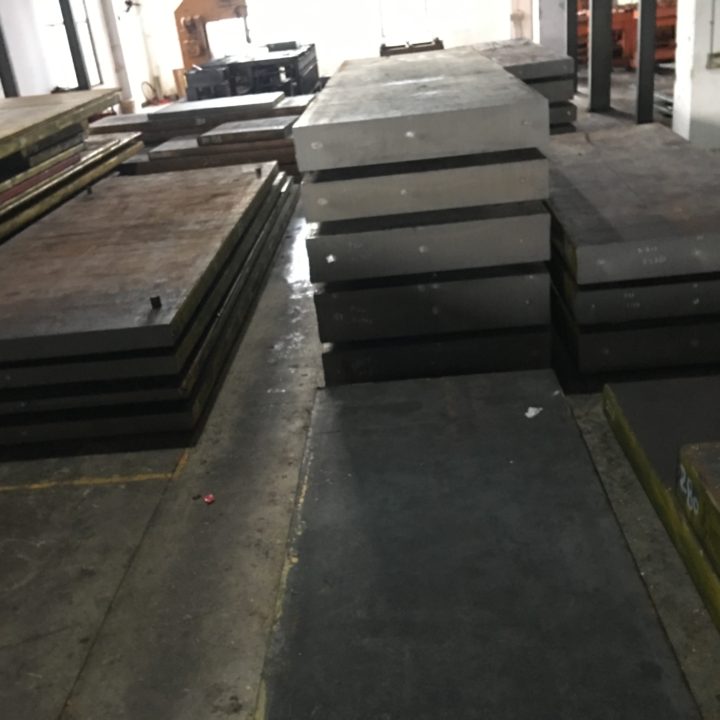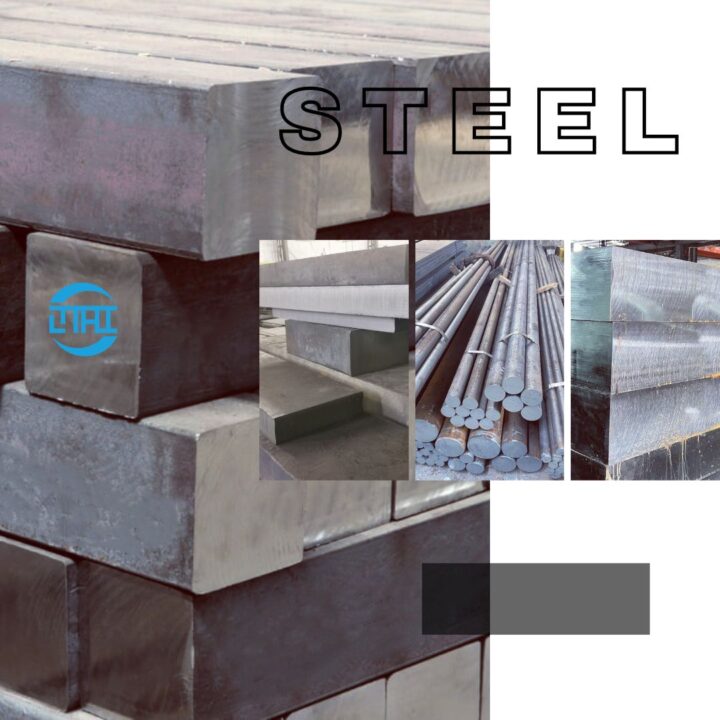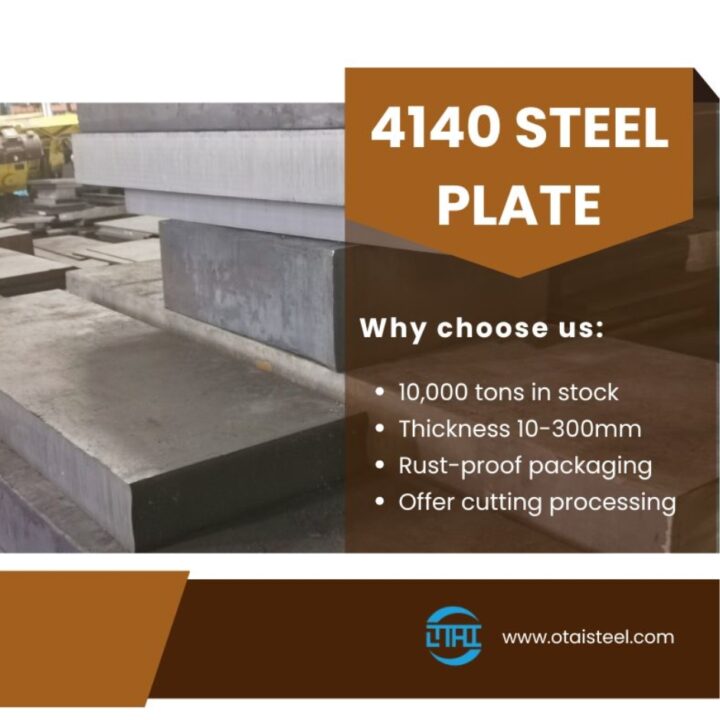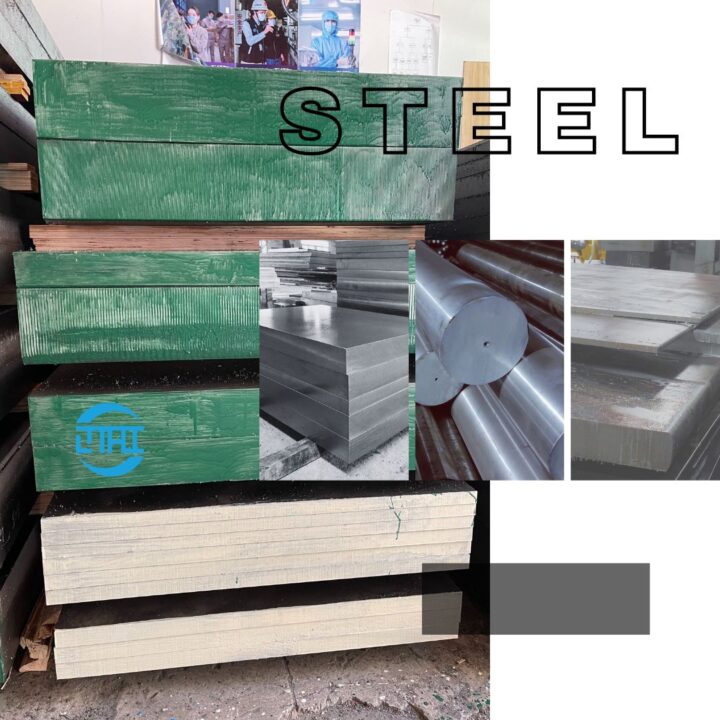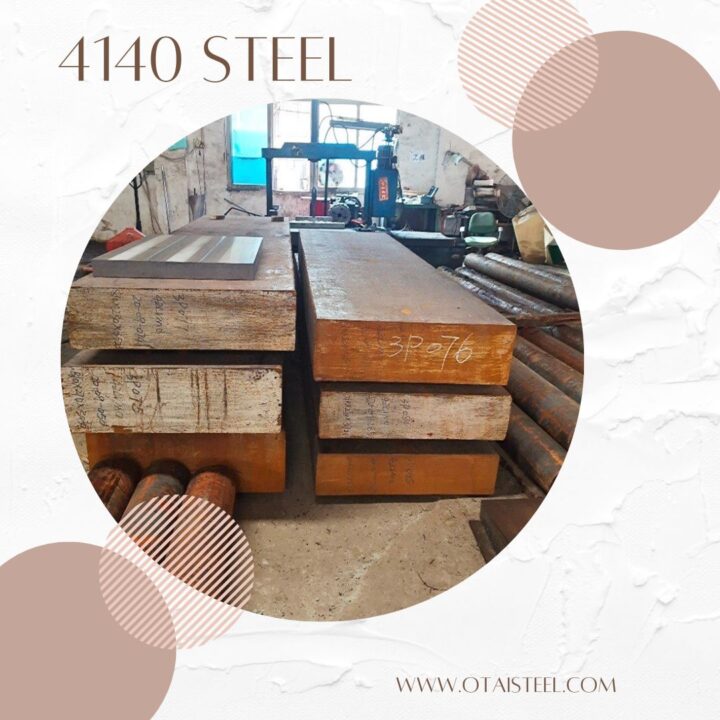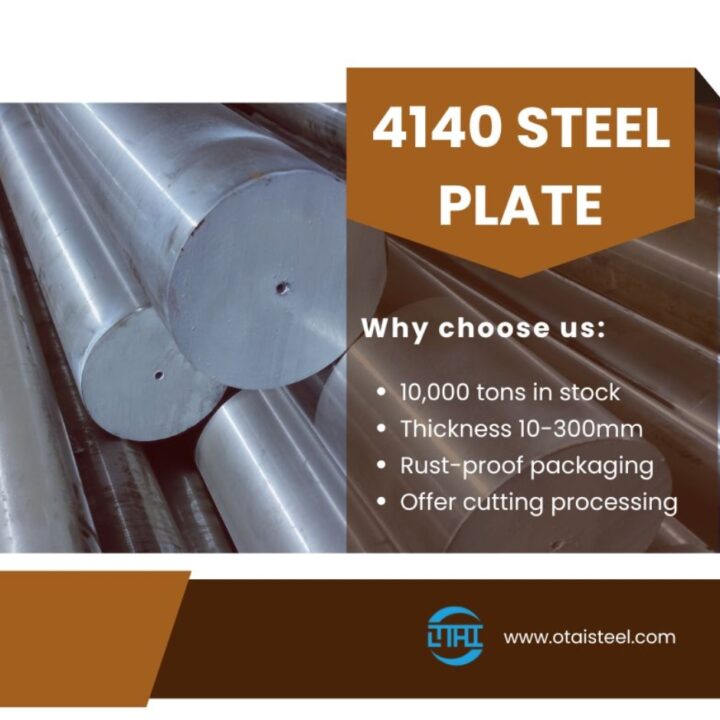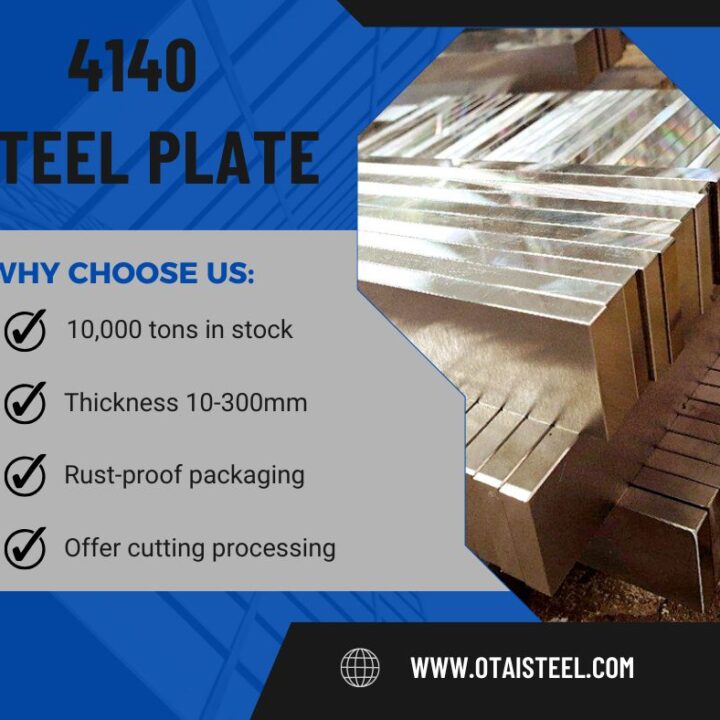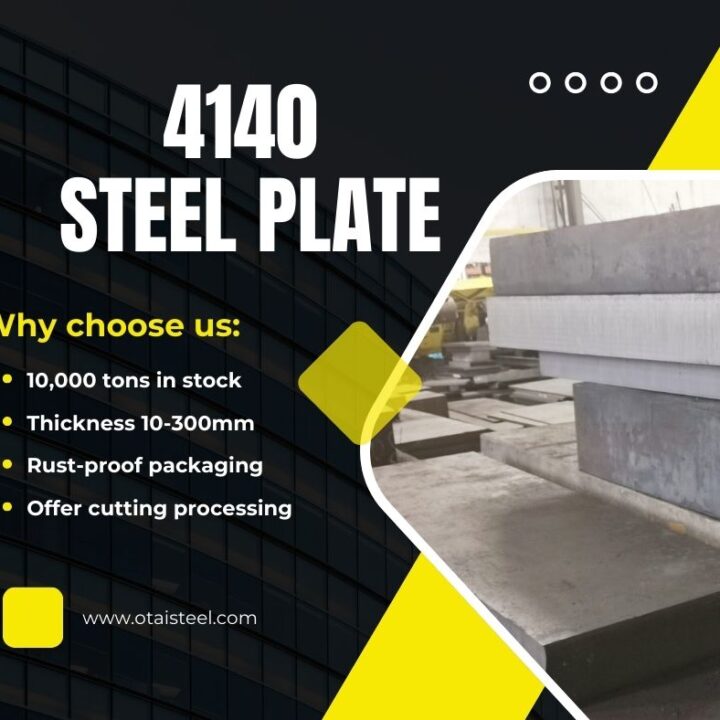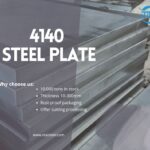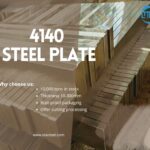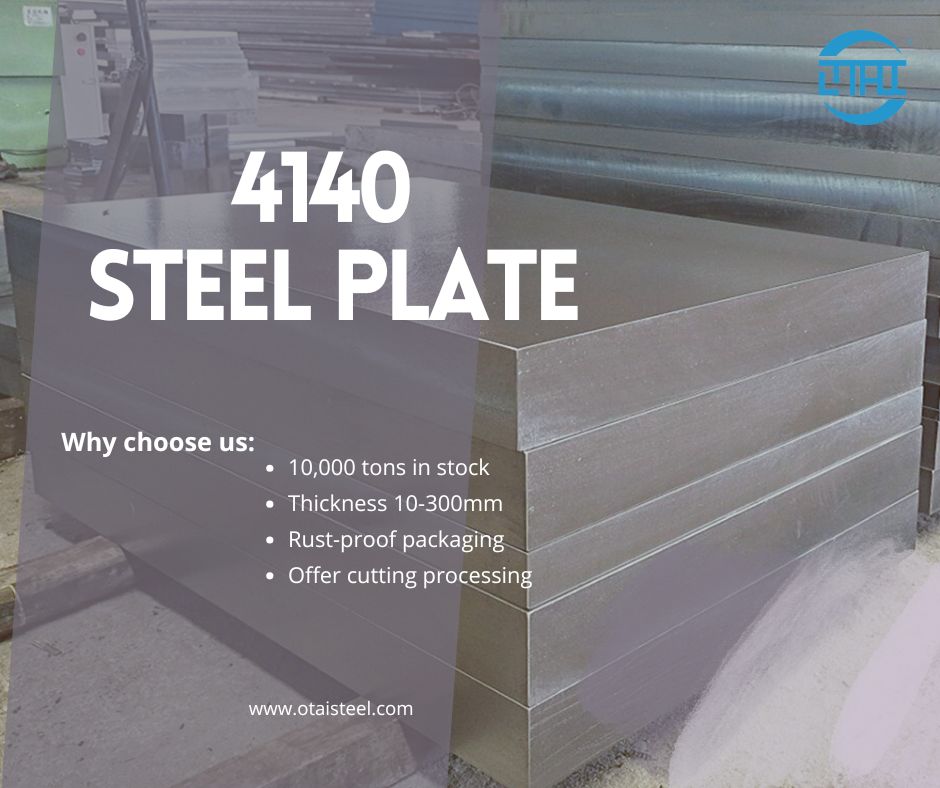
4140 is one of the most widely used materials in various industries due to its superior mechanical properties, versatility, and exceptional performance under extreme conditions. This steel combines strength, toughness, and wear resistance, making it ideal for applications where reliability and durability are critical. In this article, we will explore the key properties of alloy steel 4140, its common uses, and why it stands out in demanding industrial environments.
🌟 What is Alloy Steel 4140?
Alloy steel 4140 is a medium-carbon, low-alloy steel that contains chromium, molybdenum, and carbon as its primary alloying elements. These elements enhance hardness, strength, and resistance to wear and fatigue. It comes in different forms, including bars, plates, tubes, and sheets, making it suitable for a wide range of applications.
One of the main advantages of alloy steel 4140 is its ability to undergo heat treatment. This process allows manufacturers to adjust the material’s mechanical properties to meet specific requirements, offering greater flexibility for different industrial applications.
🔧 Key Properties of Alloy 4140
The exceptional mechanical properties of alloy steel 4140 make it suitable for high-performance applications in industries such as automotive, aerospace, oil and gas, and heavy machinery. Below are the key properties that define alloy steel 4140:
1. Tensile Strength
Tensile strength refers to the maximum amount of stress a material can withstand before breaking. Alloy steel 4140 offers excellent tensile strength, typically ranging from 850 MPa to 1000 MPa after heat treatment. This high strength ensures the material can endure significant stress without failure.
2. Yield Strength
Yield strength measures the amount of stress a material can endure before it permanently deforms. For alloy steel 4140, yield strength ranges from 600 MPa to 900 MPa, depending on the heat treatment applied. As a result, it is highly suitable for structural components that need to resist deformation under load.
3. Hardness
Alloy steel 4140 is known for its high hardness, which can be adjusted through heat treatment. After quenching and tempering, it achieves a hardness of 28 to 35 HRC. This hardness provides superior wear resistance, making it perfect for applications that involve high-impact and abrasive forces.
4. Impact Toughness
Impact toughness measures how well a material resists sudden loads or shocks. Steel 4140 maintains excellent impact toughness, even at low temperatures. Consequently, it is ideal for components that face dynamic or high-impact forces, such as those found in machinery or vehicles.
5. Ductility
While 4140 alloy steel is tough and hard, it also retains moderate ductility. This allows the material to undergo some plastic deformation before fracturing. Therefore, 4140 alloy can be easily machined and welded without cracking or breaking, making it highly versatile in fabrication.
🏗️ Applications of Alloy Steel 4140
Due to its exceptional strength, wear resistance, and toughness, 4140 is used in many industries.
| Industry | Applications | Reason for Use |
|---|---|---|
| Automotive | Axles, gears, crankshafts, suspension parts | High strength, wear resistance, and toughness |
| Aerospace | Aircraft landing gear, structural components | Durability under extreme stress and temperature |
| Oil and Gas | Drill rods, valves, downhole tools | Wear resistance, high tensile strength |
| Heavy Machinery | Machine frames, gearboxes, industrial equipment | Toughness and durability under mechanical loads |
1. Automotive Industry
In the automotive industry, 4140 alloy steel is commonly used for components such as axles, gears, crankshafts, and suspension parts. These components face significant mechanical stress and must resist wear, impact, and fatigue. Therefore, 4140 alloy steel‘s strength and toughness make it ideal for these high-performance applications.
2. Aerospace Industry
The aerospace industry requires materials that withstand extreme conditions, including high-stress, fluctuating temperatures, and fatigue. 4140 is commonly used in critical aerospace components like aircraft landing gear and structural elements. Because of its high durability and resistance to fatigue, 4140 alloy steel is indispensable in aerospace applications.
3. Oil and Gas Industry
In the oil and gas industry, 4140 alloy steel is used to produce durable drill rods, downhole tools, and valves. These components must endure high pressures and abrasive conditions. As a result, 4140 alloy steel‘s tensile strength and wear resistance make it perfect for these demanding environments.
4. Heavy Machinery
For heavy machinery, 4140 alloy steel is used in manufacturing machine frames, gearboxes, and other critical components. These parts must endure heavy mechanical loads and harsh conditions. Because of its toughness and durability, 4140 alloy steel offers reliable performance in heavy machinery applications.
🏆 Why Choose Otai Special Steel for Alloy Steel 4140?
Otai provides high-quality 4140 alloy with several advantages:
-
Large Inventory: With over 10,000 tons of steel in stock, we ensure quick and reliable delivery for all your steel needs.
-
Customization: We offer cutting, heat treatment, and packaging services to meet your specific requirements.
-
Quality Assurance: Every batch of 4140 alloy steel undergoes strict testing, including chemical composition analysis, ultrasonic testing, and hardness testing to meet industry standards.
-
Global Expertise: With years of experience, Otai Special Steel delivers high-quality products and services to clients worldwide.
❓ FAQ
Q1: What is the difference between 4140 alloy steel and other alloy steels?
A1: 4140 alloy steel is a medium-carbon, low-alloy steel that combines chromium, molybdenum, and carbon. This combination provides excellent strength, toughness, and wear resistance. Other alloy steels may use different alloying elements or have different proportions, resulting in variations in their mechanical properties.
Q2: Can 4140 alloy steel be welded?
A2: Yes, 4140 alloy steel can be welded. However, it requires preheating and post-weld heat treatment to reduce the risk of cracking, especially for high-strength applications. Preheating improves weldability and reduces the risk of distortion.
Q3: How does heat treatment affect 4140 alloy?
A3: Heat treatment significantly enhances the mechanical properties of 4140 alloy steel. After quenching and tempering, the steel achieves high tensile strength, hardness, and wear resistance, making it perfect for applications where toughness and durability under stress are essential.

